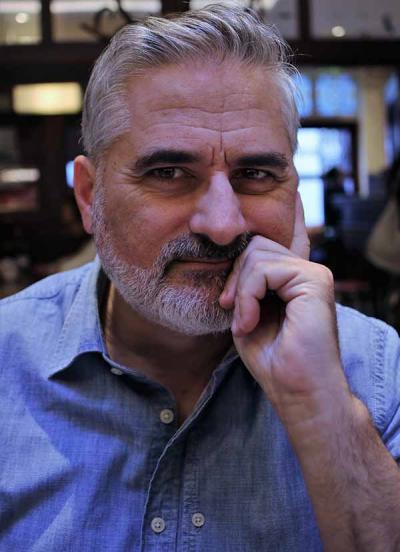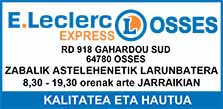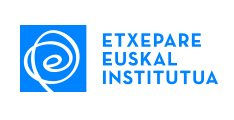“¿Qué sentido tiene ser vasco/a hoy en día en la diáspora?” Reflexiones de cinco jóvenes de la Diáspora Vasca.
Se cumple estos días un año desde el estallido y los primeros confinamientos de la COVID-19. Por aquellos días pocos eran los que podían vislumbrar lo que se avecinaba. Las consecuencias de la enfermedad llegaron a rebasar cualquier guion cinematográfico de ciencia ficción de Hollywood. Paralizaron un planeta. Más aun, la pandemia se convirtió en la mayor amenaza directa a nuestra propia condición humana en cuanto seres sociales. La distancia física se impuso como una de las herramientas más eficaces para frenar el contagio. De un plumazo se eliminaron los besos, los abrazos y las caricias a nuestros seres queridos. La muerte en soledad pasó a ser la marca más distintiva de una pandemia que atacó en su efecto más desolador a una buena parte de nuestras personas mayores, llevándose también consigo nuestra memoria más preciada.
En el reverso de la COVID nos encontramos a las grandes farmacéuticas financiadas por los países más industrializados del mundo trabajando contra reloj para producir las primeras vacunas para frenar el contagio. Por suerte se descubrieron en tiempo record vacunas y en diciembre de 2020/enero de 2021 se inició en algunos lugares la vacunación. Tiempo al tiempo.
Mientras tanto nuestro mundo vasco de la diáspora institucional continúa reinventándose día a día para no desaparecer. Los encuentros y eventos sociales físicos de las agendas de las asociaciones vascas han pasado a ser virtuales, con cierto éxito. Las promesas del Gobierno Vasco (y Navarro) de no abandono y de apoyo incondicional arrojan un halo de esperanza tal y como se ha podido evidenciar en el último Consejo Asesor de Colectividades Vascas. Tiempo al tiempo.
Al inicio de año invitamos desde estas páginas a los jóvenes de la diáspora a reflexionar sobre el sentido que tiene hoy en día para ellos/ellas mantener y cultivar su relación con lo vasco. Lo hacíamos como contrapunto a las reflexiones sobre la diáspora que previamente habíande lanzado cuatro jóvenes de Euskal Herria.
Hemos seleccionado los siguientes cinco textos de entre los remitidos a Euskalkultura.eus, representando diferentes opiniones y perspectivas. Agradecemos su contribución a todas y todos quienes nos han escrito.
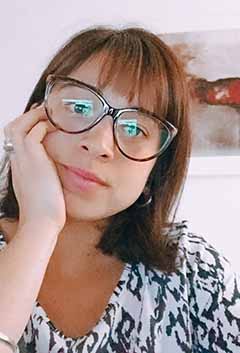 1. Paula Torres Bordenave
1. Paula Torres Bordenave
(3ª generación, biznieta; nacida en La Plata, Argentina, 30 años)
[Recordemos lo cuestionado: Por qué estando geográficamente lejos de Euskal Herria, te sientes ligado/a a lo vasco, a la cultura vasca y te defines en mayor o menor medida como vasco/a y te gustaría transmitir ese legado a quienes te sucedan. ¿Qué sentido tiene para ti, viviendo lejos del país, tu componente vasco? ¿Por qué cultivar ese sentimiento, esa cultura hoy y ahora, en pleno siglo XXI?]
Para mí, desde chica, poder decir “Soy vasca” me generó y me sigue generando un sentido de pertenencia a un colectivo, a un lazo que une a muchas personas sin conocernos entre nosotros. Decir “Soy vasca”, me hace parte de una cultura y tradiciones, que, si bien en mi vida cotidiana no son el factor común, si me emocionan y enorgullecen hacerlas cuando sucede.
Sin vivir en tierra vasca, las veces que la he visitado han reafirmado mi sentimiento de pertenencia y de querer pertenecer a una sociedad justa y con valores.
Pero algo que también me hace sentir muy orgullosa es que es tan fuerte el sentimiento de pertenencia de la Diáspora en general, que cuando uno comparte una festividad, un encuentro, una cena en un Centro Vasco, se siente en Euskadi por un rato…
En comparación con otras Diásporas, no se me ocurre ninguna que pueda señalar que logre la unidad entre quienes son parte. Sobre todo entre jóvenes…
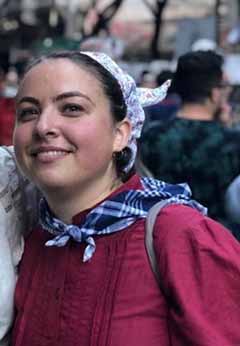 2. Sacha Miró
2. Sacha Miró
(3ª generación; nacida en San Nicolás de los Arroyos, Pcia de Buenos Aires, Argentina, 33 años)
Desde Argentina, un país que en los últimos 140 años multiplicó por 20 su población, nos hace reflexionar en un punto, qué somos, de dónde venimos y a dónde vamos. Nuestro vivir diario es un espejo donde nuestro reflejo poco en nada se parece a nuestro hermano de al lado. Esa heterogeneidad no la puedes no-tener en cuenta. La cual es una excusa indirecta en teoría para que la desigualdad social sea eje y tensión social constante. Lo “llamado vasco”, blanco caucásico, se sitúa en el lado del bien, en el lado progresista y moderno de la sociedad. La historia nos ha dejado ese caudal. Una presencia visible. Un saber popular que vincula lo vasco a ciertos valores y principios. En ese punto la curiosidad nace y se alimenta. ¿Será así...? Cuantos tópicos por derrumbar, cuantos tópicos sanos por construir.
Desde este año, 1er año de pandemia mundial, las barreras y puertas de nuestras casas se cerraron para abrirse al mundo de lo virtual. Es ahí donde los etnicismos más que diferenciarnos nos unen. Si tenemos acceso a internet, no ha habido nadie superior al otro, a pesar de los clichés políticos que así lo quieren mostrar. Es indiscutible que el vocablo o expresión, “ser-lo-vasco”, está en un rango de conocimiento más que generalizado. Un conflicto político, enraizado en años, donde la violencia parecía tener un solo dueño, ha sido el ciclorama perfecto para que el mundo y los llamados amantes de “lo vasco”, vivan una película y obra paralela a la realidad.
El bienestar medio europeo se antepone a toda posible autocrítica. Es mampara para el menosprecio de tu propio hábitat, cuando hablamos de ciertas diásporas, en este caso, desde Sudamérica. Esta barrera social y mental sólo ahonda en la tipificación y exaltación del mito. Humanizar el sentimiento es lo contrario a las enervaciones sanguíneas de lo vasco.
No somos diferentes a nadie, estamos en continuidad desde el ritual de pintar manos en una cueva con la intención de comunicarnos, dejar un mensaje al otro. Las culturas coexisten, son universales, se interrelacionan. Construir desde ese lugar es tan sencillo como interiorizar que los puentes y fronteras culturales no son líneas en un mapa político sino franjas humanas y mentales tan amplias y extensas como uno desde su estudio físico mental pueda implementar y expandir a su círculo más cercano, a su grupo, en su trabajo…
Lo vasco encierra un sinfín de premisas, 7 en 1, es una de ellas. Esta pequeña frase el ZAZPIAK BAT debiera ser nuestro leitmotiv cotidiano. Cuando este solo es un slogan, repetido en ciertos momentos una vez al año o solo cuando la premura electoral de turno necesita incrementar los sufragios, ese sentimiento vasco es igual que lo denostado a diario en los lugares donde vivimos desde ella diáspora. En ese instante la doble moral y la hipocresía campan por doquier.
Escuche que el sentimiento vasco si implica ser una persona justa, uno quiere no ser sentido vasco, sino mejor ciudadano del mundo.
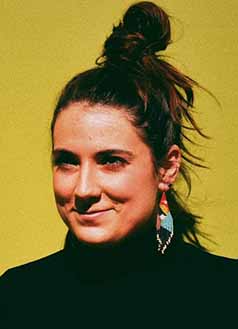 3. Madalen Bieter Lete
3. Madalen Bieter Lete
(1ª/3ª generación; nacida en Boise, Idaho, EEUU, 26 años) Zergatik ez?
My Basque identity is my anchor. I am from Boise, Idaho and have grown up immersed in Euskera, music, food, dance, storytelling, and relationships at home and in my interactions with my community. Being a version of Basque in Boise is almost instinctual and it wasn’t until I moved out of state for graduate school that I realized how hard it is to maintain a meaningful connection to something so abstract and far away.
One attribute of Basque culture that will follow me no matter how close or how far I am from “home” is Euskera. Euskera has been the catalyst to exploring my own identity within the Basque diaspora as well as the Basque Country itself. Euskera has always been a part of my expression. My parents made sure that it was the first language I learned and encouraged me to speak, read, and listen throughout my adolescence. Until college I had never learned in a formal class setting and had the opportunity to spend 3 weeks at Maizpide, a barnetegi in Lazkao, Gipuzkoa to completely immerse myself in the language. There, I learned about grammar, how to read and write and how to think in Basque. Though it caused quite a few headaches and required calls home for homework help, I found myself thinking less about pre-planning my sentences and began to speak more freely. I still can vividly remember standing at the balcony as my amona was preparing lunch and using the word “zenituzketeen” in a sentence correctly and without trying. It felt like signing up for the marathon of learning a language had paid off and that the headaches and frustration were truly worth it. It was that summer that I realized I could be me in Euskera. That Euskera Madalen and English Madalen were the same person.
That same summer I made two very profound friendships that I still maintain today, almost seven years later. Until that point, I only needed Euskera to talk with my amona, aitona and the rest of my mom’s family in the Basque Country. The friends that I made that summer built a bridge that helped me feel like I was one of them. Like I wasn’t just a temporary visitor. They were the first Basque people outside my family that I truly meant something to. I belonged with them.
In addition to maintaining relationships with family so far away, speaking Euskera has also opened the door to poetry and music. I find that music and poetry, in general, are so much better at capturing moments and emotions than the words or images that I could create for myself. Euskera has opened up a new avenue of my own self exploration through music that I would never have access to if I didn’t understand it. Music is my free airplane ticket. Esne Beltza takes me back to my first gaupasa in Irun, Maialen Lujanbio challenges my perspective, the dultzaina makes me want to get up and dance in a plaza, and the song Zaindu Maite Duzun Hori will always make me wish the people I love were next to me.
Of all the “things” that make me Basque and motivate me to maintain my ties with family and friends in the Basque Country, Euskera will always be at the forefront. It is the vehicle through which I define and redefine my identity. Without it I would feel like an outsider. Now, knowing the richness it has brought to my life, I would feel hollow and like a large part of my soul would be missing if I ever lost it and the people it has brought me. My definition of being Basque in the diaspora will continue to evolve just as it has over time, but I know that one thing is for sure… Euskalduna naiz eta harro nago.
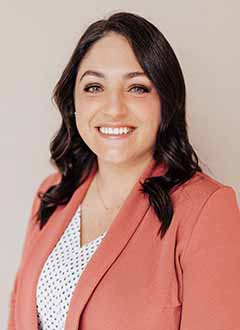 4. Alise Skaggs
4. Alise Skaggs
(2ª generación; nacida en Utah, EEUU, 33 años). Why I am Basque in the Diaspora?
My name is Alise and I live in Utah, USA. My paternal grandparents came to Utah from the Basque Country. I was raised in a Basque family and community surrounded by traditional Basque food, dancing, and events. It was simply our way of life. As I got older, the passion for my culture grew. For traditional American holidays, we still have Basque food along with American food. We have a Basque Dance group where I spend most weekends practicing with my Basque friends. We perform for our Basque community and also our local community when they celebrate world cultures. Many of our summers are spent traveling to different states for their Basque festivals where we dance, have weightlifting and wood chopping competitions, eat and socialize.
Living in the Diaspora does not make me feel less Basque and I don’t think your location or language are the only things that define your culture, beliefs or traditions. Our Basque community in Utah is small, which makes it even more important to keep the culture alive. We have been to the Basque Country several times and love it there. We love to learn about where our family and friends are from and bring those memories back home.
I currently have one child who I read Basque books to and sing a Basque song that my grandmother always sang to us as children. He is still young, but we plan to continue to integrate our Basque culture into our daily lives as he grows up.
Being Basque is who I am, it’s a major part of my identity and I wouldn’t have it any other way.
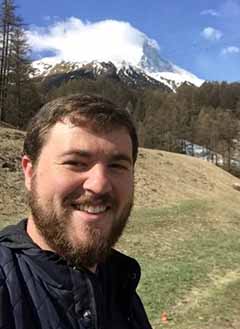 5. Joseba Criswell
5. Joseba Criswell
(1ª generación; nacido en Winnemucca, Nevada, EEUU, 25 años)
It is strange being a young Basque American living in the United States, essentially split between two worlds. On one hand you are surrounded by those who still have the image of leaving their country due to a fascist dictator and on the other hand, possibly a much larger hand as well, you have those who vehemently support an American man who shares many of the same ideals of the same dictator. Being a young person in a world shifting towards globalism yet living in a country intent on becoming more and more nationalistic, it is more important for me to stay in touch with my Basque roots than ever before. I stay in touch with my Basque identity as a way to ensure the Basque ideals are not lost, and I am not forced to call myself Basque only in name and not in soul or spirit.
As I spoke to before, we are living in a world of heightened political tension. Unfortunately, very few people are willing to keep up to date on current events around the world, let alone in their own little bubbles. People are easily swayed by nationalistic talking points; blissfully unaware these are the same talking points that caused a fascist dictator to rise and stay in power for over 40 years. 40 years that caused nearly irreparable damage to the Basque people. Here I am, 45 years after the death of a fascist leader, listening to many Basque Americans support a man who share many of Franco’s ideals without realizing it. Fascism under the guise of fanatic nationalism, militarism, quasi-religion, and misogynistic values are once again poisoning the brains of many across America and the world. Though this time it is a bit different because many Basque Americans, and even more Americans, are not fighting against it. Instead, they are leaning into it. Being connected to my Basque heritage reminds me of what my ancestors, our ancestors, fought against, were imprisoned against, and many died for.
I have always felt a strong connection to the Basque Country and my family. It has given me a sense of purpose. Although I was born in America, I have always felt and identified as Basque. I feel closer to my Basque roots than anything else. From the first time I visited Euskal Herria I knew immediately that was where I came from and where I wanted to be. It is extremely consoling, being an American with ideals and beliefs that are unpopular in America, knowing there is an entire country filled with people who think like me, act like me, enjoy the same things as me, and perceive the world the way I do. People always say the Basques are closed and cold. I have never felt uncomfortable or unwelcome in the Basque Country, quite the opposite. I appreciate the fact I am free to speak and feel naturally amongst both family and strangers in Euskal Herria. In contrast, it is nearly impossible to simply mention a criticism of life as an American without being labeled a traitor, communist, and anti-American. This criticism comes from Americans and Basque-Americans alike. My connection with the Basque Country broadened my world view and allowed me to recognize just because something has been done a certain way forever, it doesn’t necessarily mean we must continue that way if there are different paths that will help move society forward. My first visit to the Basque Country and every consequent visit has been nothing short of inspiring.
Finally, and most importantly, my family history was born and remains in the Basque Country. My family has been rooted in the Basque Country since living in the caves of Santimamiñe. My mother was born in the prettiest town not only in Euskal Herria, but in the world. Nestled on the coast of Bizkaia with less than 300 people, it is truly my Shangri-La. There is something to be said about finding a place where you are most comfortable. People spend their entire lives searching for happiness, travelling around the globe in the hopes they might stumble upon a place where they are at peace. I have found that and so much more in Euskal Herria. Once you find a place like that, you don’t ever want to let it go. Gora Natxitu eta gora Euskal Herria!



 Enviar a un amigo
Enviar a un amigo Añadir comentario
Añadir comentario

